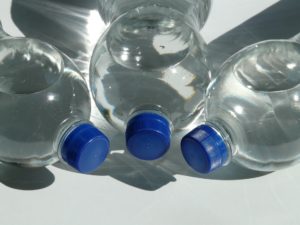
Natural foods grocery chain Whole Foods introduced its new brand of bottled water at a 2015 investor event, where company executives heralded the product’s purity and healthfulness.
“It naturally flows out of the ground,” said Chief Operating Officer A.C. Gallo about the company’s spring in Council, Idaho, according to a published transcript on its website. “We built, actually, a spring house over it so we can let the water go down to the bottling plant. It’s amazingly pristine water.”
Yet from late 2016 to early 2017, Starkey Water—the name of Whole Foods’ brand—recalled more than 2,000 cases of water after tests by regulators showed an impermissible level of arsenic beyond the federally mandated threshold of 10 parts per billion. A year later, Whole Foods’ internal testing showed results that were under the federal limit but still at levels that a growing body of research and independent experts, including Consumer Reports scientists, say pose health risks if regularly consumed.
Over the past few years, as consumers have worried more about the quality of municipal tap water, bottled water has surged in popularity and is now the nation’s best-selling bottled beverage. But a CR investigation has found that in some cases bottled water on store shelves contains more potentially harmful arsenic than tap water flowing into some homes.
“It makes no sense that consumers can purchase bottled water that is less safe than tap water,” says James Dickerson, Ph.D., chief scientific officer at Consumer Reports. “If anything, bottled water—a product for which people pay a premium, often because they assume it’s safer—should be regulated at least as strictly as tap water.”
